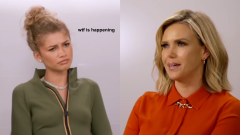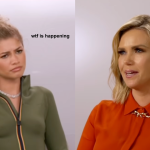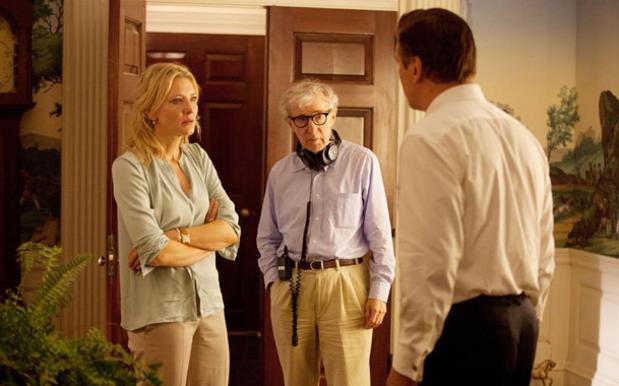
“What’s your favourite Woody Allen movie?” asks Dylan Farrow. In an open letter, published in Nicholas Kristof’s ‘On the Ground’ column in the New York Times blog, the daughter of Woody Allen and Mia Farrow writes about the child sexual abuse allegations involving her father, that have been circulating for years.
Reading the words “For as long as I could remember, my father had been doing things to me that I didn’t like”
is enough to bring on a hardcore case of the chills. It’s a powerful letter, and one that brings up feelings of hopelessness and anger when you think of a child powerless at the hands of an abuser. Already it has drawn countless people, those with connections to the family and strangers alike, to comment.
Until this letter, all the contributors to the “firestorm”, as Dylan describes it, have been unprompted – writers, those who have experienced abuse, celebrities, movie fans et cetera – until now. Those most notably absent from the conversation of late were the only two who knew the truth of it, namely Dylan Farrow and Woody Allen.
In Farrow’s letter, she directly calls on Hollywood, society at large and actors associated with Allen and his films, to consider how we collectively respond to the survivors of sexual assault and abuse: “What if it had been your child, Cate Blanchett? Louis CK? Alec Baldwin? What if it had been you, Emma Stone? Or you, Scarlett Johansson? You knew me when I was a little girl, Diane Keaton. Have you forgotten me?”
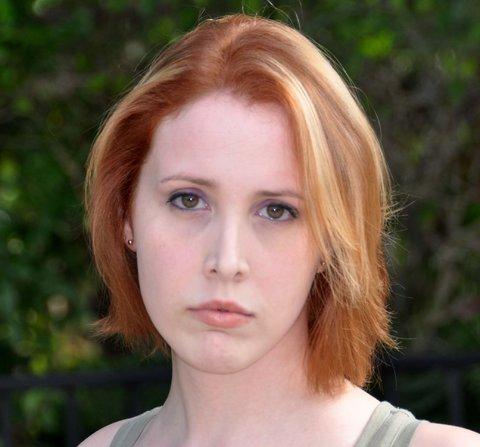
When asked about the allegations at the Santa Barbara International Film Festival, Blanchett told journalist Jeffrey Wells, “It’s obviously been a long and painful situation for the family and I hope they find some sort of resolution and peace.”
Alec Baldwin has taken to twitter with, “What the f&@% is wrong w u that u think we all need to b commenting on this family’s personal struggle?” He later tweeted: “So you know who’s guilty? Who’s lying? You, personally, know that? You are mistaken if you think there is a place for me, or any outsider, in this family’s issue” and “USA is supposed to be THE place where you get a fair trial. Can a fair trial be conducted w everyone’s tired opinions on the internet?” The tweets have since been deleted.
No word from the accused himself, but his publicist released a statement saying: “Mr. Allen has read the article and found it untrue and disgraceful. He will be responding very soon … At the time, a thorough investigation was conducted by court appointed independent experts. The experts concluded there was no credible evidence of molestation; that Dylan Farrow had an inability to distinguish between fantasy and reality; and that Dylan Farrow had likely been coached by her mother Mia Farrow. No charges were ever filed.”
Likewise, Allen’s attorney, when asked for a statement, said: “It is tragic that after 20 years a story engineered by a vengeful lover resurfaces after it was fully vetted and rejected by independent authorities. The one to blame for Dylan’s distress is neither Dylan nor Woody Allen.”
When it comes to Hollywood and the entertainment industry at large, there is no doubt that allegations such as this and the suffering of victims have been routinely exacerbated and repressed. It is well known that the handling of any child sex abuse case is a huge challenge for parents, carers, police, lawyers, judges, mental health professionals, the media and anyone else involved and that more needs to be put into refining and improving the whole procedure. When it comes to this particular story, as pointed out by Robert B. Weide, who made ‘Woody Allen: A Documentary’, in his recent defence of Allen: “Countless people have weighed in on this, many of them without the slightest idea of what the facts are in this matter.”
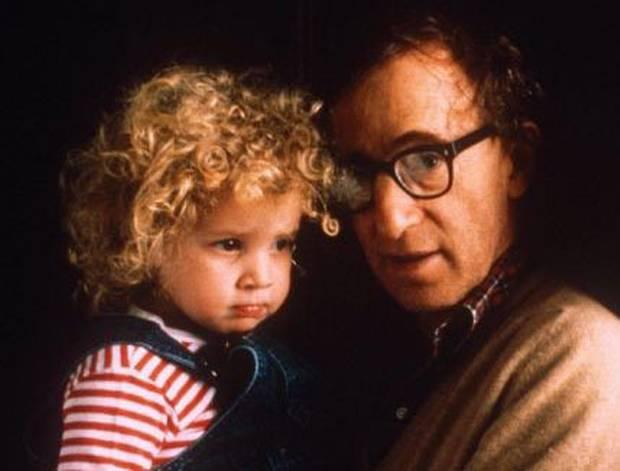
In terms of those who do know what they’re talking about, researchers found that false allegations of sexual abuse by children and adolescents are statistically uncommon. When studying victims they found a “significant tendency among the children to deny or minimise their experiences”, they concluded that “some children simply did not want to disclose their experiences, some had difficulties remembering them, and one child lacked adequate concepts to understand and describe them.”
When it comes to disclosure patterns of sexually abused children, many experts agree that “most victims delay disclosure for years, often until adulthood.” Elsewhere, experiments have shown that in very particular circumstances false childhood memories can successfully be implanted within a person’s mind, including cases where mothers coach children against former partners. Within the justice system false accusations of child sexual abuse, despite being rare, have been identified, with subsequent research suggesting that children who make false accusations are much more likely to suffer ‘personality disorders’ and that falsely accusing parents were “sometimes so obsessed with anger towards their estranged spouse that this became a major focus in their lives”.
Research into the process of prosecuting cases of alleged child sexual abuse suggests that the key question is “how do we know if a child is telling the truth?” It also makes mention of weaknesses in the system including the fact that interviews are done by police officers who are unfamiliar to the child. Also, many children will not freely disclose information on sensitive topics and may not grasp the language used, leading to misunderstanding, which undermines the child’s ‘credibility’. Of course, few studies take into account the extenuating circumstances that arise when the accused is a world-famous director with a multitude of powerful allies. So, back and forth it goes. In a piece for The New Inquiry, Aaron Bady quite rightly says, “The damnably difficult
thing about all of this, of course, is that you can’t presume that both
are innocent at the same time.”
Not unlike the royal commission currently underway in Australia, the renewed call to look at Hollywood, as an institution and its response to child abuse is entirely necessary. However, without an official investigation underway and the initial investigation dismissed all those years ago, this particular case has become a trial by internet which, thanks to the sheer amount of ‘noise’, emotion and financial interest involved is a complete shit fight.
A lot has been made of how the allegations and open letter will possibly impact Cate Blanchett’s Oscar chances. Blanchett who is competing for Best Actress in a Leading Role against Amy Adams in American Hustle, Sandra Bullock in Gravity, Judi Dench in Philomena, and Meryl Streep in August: Osage County, was widely tipped to be a frontrunner.
Likewise, there are those who believe this to signal the end of Allen’s career in film.
With renewed discussion surrounding Woody Allen the man and subsequently, the director, when it comes to the Academy’s decision and our enjoyment of his work, it is much harder to ignore the voice of an adult who is capable of eloquently presenting what they believe to have been their experience. One thing is certain, we want to know the truth. We suffer that human need to know whether Allen is ‘good’ or ‘bad’ and whether or not he needs to be placed in the ‘monster’ box whereby all of his work and even personality is negated.
The notion that you could be a person who knows/likes/works with/is a fan of someone who could do something so horrific or that a child could be coached by their mother to tell awful lies about their father and continue those lies into adulthood, is sickening, to say the least. If the latter is the case and what Dylan affirms is untrue, it begs the question: what does she have to gain by drudging all this up now? Truly, the only possibility would be that as a result of vindictive brainwashing by her mother she wishes to see her father, and his career, suffer. Would her seemingly peaceful life, in which she claims to have finally found happiness, be worth risking to expose herself to the harsh criticisms of an outside world previously dismissive of her claims? Instinctively, I’d say no. Survivors of abuse never have an easy road when coming forward to tell their story, and it would take a very particular kind of person to be willing to walk it without truth on their side.
When it comes to the work of Woody Allen, personally I never did count myself as a fan and can truthfully say that he always did seem to be an unappealing, smarmy little fuck. To the question of separating the art from the artist, and whether it is possible, the idea of supporting and enjoying the creations of someone who has perpetrated terrible wrongs seems at odds with the very thought of ‘creativity’ to me. The work of their mind cannot ever be penance enough for actions which have irreversibly damaged the mind of another.
If we don’t take a firm stand against those who have inflicted grievous pain, regardless of their creative output, we move further away from creating a safe environment for survivors and risk harming prevention efforts. And at the end of the day, that is surely what is most important in all of this.
